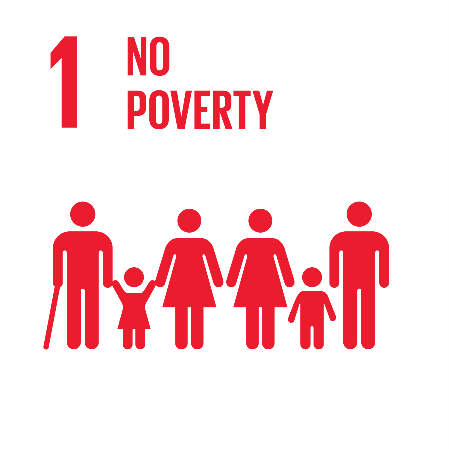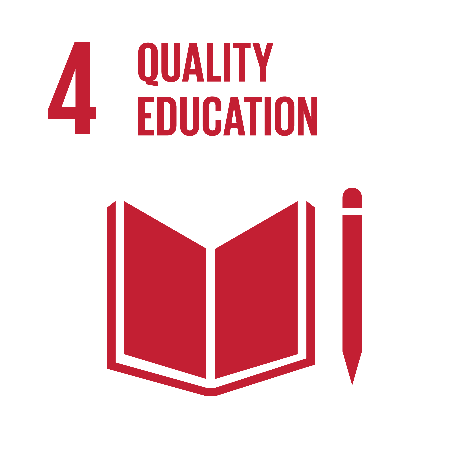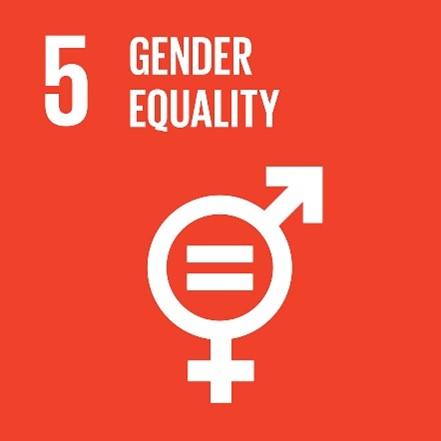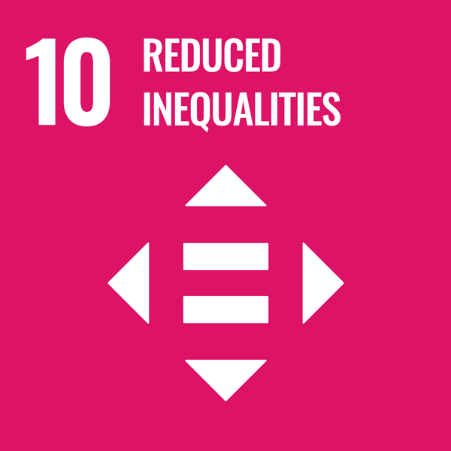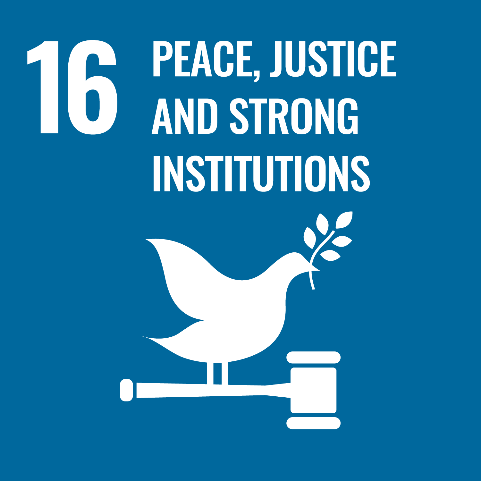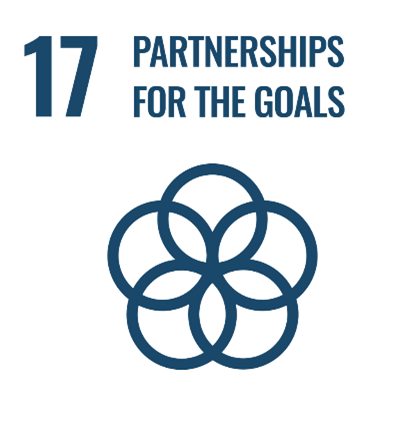1.Partherships for change
Thozhamai's initiatives aimed at addressing SDG 1: No Poverty are multifaceted and designed to empower marginalized communities, create livelihood opportunities, and promote economic inclusion. Here's an elaboration on how Thozhamai achieves this:
1. Empowering Marginalized Communities: Thozhamai recognizes that poverty often affects marginalized communities disproportionately. To address this, Thozhamai implements various programs that empower these communities by providing them with the necessary tools, resources, and support to improve their socio-economic status. This empowerment may include skill development training, entrepreneurship programs, and capacity-building workshops tailored to the specific needs of different marginalized groups such as women, ethnic minorities, and rural populations.
2. Livelihood Opportunities: Thozhamai creates opportunities for marginalized individuals and communities to earn a sustainable livelihood. This may involve initiatives such as vocational training programs, job placement services, microfinance initiatives, and support for small-scale entrepreneurs. By facilitating access to income-generating activities, Thozhamai helps individuals break the cycle of poverty and build a better future for themselves and their families.
3. Promoting Economic Inclusion: Thozhamai promotes economic inclusion by advocating for policies and practices that ensure marginalized communities have equal access to economic opportunities, resources, and services. This may involve raising awareness about the importance of inclusive economic growth, lobbying for policies that promote fair labor practices and social protection measures, and fostering partnerships with government agencies, businesses, and other stakeholders to create an enabling environment for economic inclusion.
4. Community Development Projects: Thozhamai invests in community development projects that aim to uplift entire communities and address the root causes of poverty. These projects may include infrastructure development, access to clean water and sanitation, healthcare services, education, and social welfare programs. By improving overall community well-being and resilience, Thozhamai helps to reduce vulnerability to poverty and enhance long-term sustainable development outcomes.
2. Zero Hunger
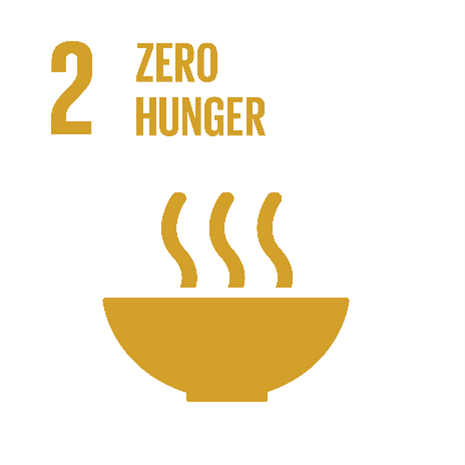
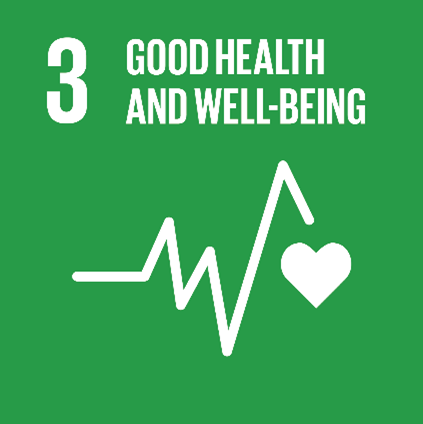
Thozhamai's initiatives aimed at addressing SDG 1 with a special focus on children in urban resettlement areas are tailored to meet the unique needs and challenges faced by this vulnerable population. Here's how Thozhamai works to alleviate poverty and improve the well-being of children in urban resettlement areas:
1. Education Access Programs: Thozhamai prioritizes education access for children living in urban resettlement areas by establishing and supporting educational facilities such as schools, learning centers, and tuition programs. These initiatives aim to ensure that children have access to quality education, including formal schooling and non-formal education opportunities, regardless of their socio-economic background. Thozhamai provides scholarships, educational materials, and transportation support to enhance access and retention rates among children from marginalized families.
2. Nutrition and Health Services: Thozhamai implements nutrition and health programs targeting children in urban resettlement areas to address malnutrition, improve health outcomes, and prevent diseases. These programs may include supplementary feeding schemes, micronutrient supplementation, growth monitoring, immunization campaigns, and access to basic healthcare services. Thozhamai collaborates with healthcare providers, nutritionists, and community health workers to deliver comprehensive health and nutrition interventions that promote the overall well-being of children.
3. Livelihood Support for Parents: Thozhamai recognizes the importance of supporting parents and caregivers in urban resettlement areas to improve household income and economic stability, which directly impacts children's well-being. Thozhamai facilitates livelihood support programs for parents, including vocational training, income-generation activities, and microenterprise development initiatives. By empowering parents to generate sustainable income, Thozhamai indirectly improves the economic situation of families and enhances their ability to provide for their children's basic needs.
4. Child Protection and Welfare Services: Thozhamai advocates for the rights and protection of children in urban resettlement areas and provides support services to address issues such as child labor, exploitation, abuse, and neglect. Thozhamai establishes child-friendly spaces, counseling centers, and helplines to provide children with a safe environment, psychosocial support, and legal assistance. Thozhamai also collaborates with local authorities, law enforcement agencies, and community organizations to strengthen child protection mechanisms and promote child-friendly policies and practices.
5. Community Development and Empowerment: Thozhamai engages with communities in urban resettlement areas to build their capacity, foster social cohesion, and promote community-led development initiatives. Thozhamai facilitates community meetings, awareness campaigns, and participatory workshops to empower residents, enhance social networks, and mobilize collective action for poverty alleviation and sustainable development. Thozhamai encourages community members to identify their priorities, leverage local resources, and advocate for their rights, including the rights of children, within the broader context of urban development and governance.
Through these targeted interventions and holistic approaches, Thozhamai aims to break the cycle of poverty and improve the well-being of children in urban resettlement areas, ensuring that they have equal opportunities to thrive and reach their full potential. By addressing the root causes of poverty and investing in children's education, health, protection, and community development, Thozhamai contributes to achieving SDG 1: No Poverty and creating a more inclusive and equitable society for all.
SDG 4
Thozhamai's initiatives aimed at addressing SDG 4 with a special focus on children and women involve various programs and activities geared towards promoting quality education, enhancing learning opportunities, and empowering these vulnerable groups. Here's how Thozhamai contributes to SDG 4:
1. Promoting Access to Education: Thozhamai works to ensure that children, especially girls, have access to quality education by addressing barriers such as poverty, discrimination, and cultural norms. Thozhamai implements programs to enroll out-of-school children, provide scholarships, and support families with educational expenses to encourage school attendance and retention, particularly among girls. Thozhamai also advocates for the removal of gender-based barriers to education and promotes inclusive schooling environments where all children, regardless of gender or socio-economic background, can learn and thrive.
2. Improving Learning Outcomes: Thozhamai focuses on improving learning outcomes by enhancing the quality of education and strengthening teaching practices. Thozhamai supports teacher training programs, curriculum development initiatives, and educational resources to enhance the capacity of educators and improve teaching methodologies. Thozhamai also promotes child-centered learning approaches, interactive teaching methods, and experiential learning opportunities to engage children in the learning process and foster critical thinking, creativity, and problem-solving skills.
3. Addressing Gender Disparities: Thozhamai addresses gender disparities in education by promoting gender-sensitive policies, advocating for girls' education rights, and providing support to marginalized girls to overcome barriers to schooling. Thozhamai conducts gender sensitization workshops, awareness campaigns, and community dialogues to challenge stereotypes, empower girls, and promote gender equality in education. Thozhamai also implements initiatives to address specific challenges faced by girls, such as early marriage, child labor, and lack of access to menstrual hygiene management facilities, to ensure that girls can fully participate in and benefit from educational opportunities.
4. Supporting Women's Education and Empowerment: Thozhamai recognizes the importance of women's education in promoting gender equality, economic empowerment, and sustainable development. Thozhamai provides adult literacy programs, vocational training courses, and life skills education to women and mothers to enhance their literacy skills, improve their livelihood opportunities, and strengthen their capacity to support their families. Thozhamai also promotes women's leadership and participation in decision-making processes related to education, empowering women to advocate for their rights and contribute to community development.
5. Holistic Education Approach: Thozhamai adopts a holistic approach to education that addresses the diverse needs of children and women, including their health, nutrition, and psychosocial well-being. Thozhamai integrates health education, nutrition interventions, and psychosocial support services into educational programs to create a conducive learning environment that promotes holistic development. Thozhamai also collaborates with health providers, social workers, and community organizations to provide comprehensive support to children and women, ensuring that they receive the necessary resources and support to thrive academically and personally.
Through these multifaceted education initiatives and empowerment strategies, Thozhamai contributes to SDG 4: Quality Education by promoting inclusive and equitable education opportunities for children and women, empowering them to reach their full potential, and fostering lifelong learning opportunities for all. By investing in education and empowering these vulnerable groups, Thozhamai works towards breaking the cycle of poverty, promoting gender equality, and building more resilient and prosperous communities where every individual has the opportunity to learn, grow, and succeed.
SDG 5
Thozhamai's work in promoting gender equality through sports and other initiatives is an impactful way to empower girls and women, challenge stereotypes, and foster inclusive communities. Here's how Thozhamai contributes to gender equality through these activities:
1. Sports Programs for Girls: Thozhamai organizes sports programs specifically tailored for girls, providing them with opportunities to participate in various sports and physical activities. By promoting sports among girls, Thozhamai aims to break gender stereotypes, build confidence, and enhance physical fitness and well-being. These programs also encourage teamwork, leadership skills, and self-esteem among girls, empowering them to challenge societal norms and pursue their passions without discrimination.
2. Gender-Sensitive Coaching and Training: Thozhamai ensures that sports coaching and training programs are gender-sensitive and inclusive, providing equal opportunities for girls and boys to participate and excel in sports. Thozhamai promotes positive coaching practices that emphasize respect, fairness, and inclusivity, creating a supportive and safe environment where girls feel valued and empowered to fully engage in sports activities. By training coaches and mentors on gender equality principles, Thozhamai fosters a culture of gender sensitivity and inclusivity within the sports community.
3. Advocacy for Gender-Equal Sports Policies: Thozhamai advocates for the implementation of gender-equal sports policies and practices at the community, institutional, and governmental levels. Thozhamai engages with sports organizations, schools, and local authorities to promote gender mainstreaming in sports governance, ensuring that girls and women have equal access to sports facilities, resources, and opportunities. Thozhamai also works to address barriers to girls' participation in sports, such as cultural norms, lack of resources, and gender-based discrimination, advocating for policy changes that support gender equality in sports.
4. Awareness Campaigns and Community Engagement: Thozhamai conducts awareness campaigns and community engagement activities to promote gender equality in sports and challenge harmful stereotypes and attitudes. Thozhamai organizes workshops, seminars, and public events to raise awareness about the importance of girls' participation in sports, the benefits of gender-inclusive sports programs, and the role of sports in promoting gender equality and social inclusion. Thozhamai also collaborates with schools, community centers, and local organizations to create opportunities for girls to showcase their talents, celebrate their achievements, and inspire others to pursue their dreams without limitations.
5. Capacity Building and Leadership Development: Thozhamai provides capacity-building and leadership development opportunities for girls and women involved in sports, equipping them with the skills, knowledge, and confidence to become leaders and role models in their communities. Thozhamai offers training workshops, mentorship programs, and networking events to empower girls and women in sports leadership positions, encouraging them to advocate for gender equality, drive positive change, and make a difference in their communities. Through these initiatives, Thozhamai aims to create a more inclusive and equitable sports culture where girls and women are valued, respected, and supported to reach their full potential on and off the field.
By promoting gender equality through sports and other initiatives, Thozhamai contributes to breaking down barriers, challenging stereotypes, and creating a more inclusive and equitable society where girls and women have equal opportunities to participate, excel, and lead in sports and beyond. Through its holistic approach to gender equality, Thozhamai empowers girls and women to overcome obstacles, pursue their passions, and realize their dreams, ultimately contributing to a more just, inclusive, and sustainable world for all.
SDG 10
SDG 10 hozhamai's innovative work contributes significantly to SDG 10, which aims to reduce inequalities within and among countries. Here's how Thozhamai's initiatives align with and support the achievement of this goal:
1. Empowering Marginalized Communities: Thozhamai implements innovative programs that empower marginalized communities, including low-income families, ethnic minorities, and individuals living in rural or remote areas. By providing access to education, healthcare, livelihood opportunities, and social support services, Thozhamai helps to address systemic inequalities and improve the well-being and socio-economic status of marginalized groups.
2. Promoting Social Inclusion: Thozhamai fosters social inclusion by creating platforms for dialogue, collaboration, and mutual understanding among diverse communities. Through community-based initiatives, cultural exchange programs, and advocacy campaigns, Thozhamai promotes tolerance, respect, and acceptance of differences, thereby reducing social divisions and promoting social cohesion.
3. Advocating for Policy Reforms: Thozhamai engages in advocacy and policy dialogue to promote policy reforms that address structural inequalities and promote social justice. By advocating for pro-poor policies, equitable distribution of resources, and inclusive development strategies, Thozhamai works to create an enabling environment for reducing disparities and promoting equal opportunities for all.
4. Capacity Building and Skills Development: Thozhamai invests in capacity building and skills development programs targeted at vulnerable populations, including youth, women, and persons with disabilities. By equipping individuals with relevant skills, knowledge, and resources, Thozhamai enhances their employability, income-earning potential, and socio-economic mobility, thereby reducing disparities and promoting upward social mobility.
5. Promoting Access to Justice: Thozhamai supports initiatives that promote access to justice and legal rights awareness among marginalized communities. By providing legal aid services, conducting rights awareness campaigns, and strengthening community-based legal support mechanisms, Thozhamai helps to empower individuals to assert their rights, seek redress for grievances, and challenge discriminatory practices and policies.
6. Collaborating with Stakeholders: Thozhamai collaborates with a wide range of stakeholders, including government agencies, civil society organizations, academia, and the private sector, to leverage resources, expertise, and networks for addressing inequalities. Through multi-sectoral partnerships and collaborative initiatives, Thozhamai maximizes its impact and promotes collective action towards achieving SDG 10 objectives.
Overall, Thozhamai's innovative approach to addressing inequalities contributes to building more inclusive, equitable, and sustainable societies. By targeting the root causes of inequalities and implementing holistic solutions that empower marginalized communities, Thozhamai plays a critical role in advancing SDG 10 and creating a world where everyone has the opportunity to thrive and fulfill their potential, regardless of their background or circumstances.
SDG 16
Thozhamai's work aligns closely with the objectives of SDG 16, which aims to promote peaceful and inclusive societies, provide access to justice for all, and build effective, accountable, and inclusive institutions at all levels. Here's how Thozhamai contributes to advancing SDG 16 through its advocacy and solidarity efforts for rights and justice:
1. Promoting Human Rights: Thozhamai actively promotes human rights awareness and advocates for the protection of fundamental rights and freedoms for all individuals, especially marginalized and vulnerable groups. Through educational campaigns, community outreach programs, and grassroots advocacy initiatives, Thozhamai works to empower individuals to know and assert their rights, thereby fostering a culture of respect for human dignity and equality.
2. Advocating for Social Justice: Thozhamai engages in advocacy campaigns and policy dialogues to address social injustices and systemic inequalities within society. By raising awareness about issues such as poverty, discrimination, gender-based violence, and social exclusion, Thozhamai advocates for policy reforms and interventions that promote social justice, equity, and inclusion for all members of society.
3. Supporting Access to Justice: Thozhamai provides support and assistance to individuals and communities seeking access to justice, particularly those who face barriers to legal recourse due to poverty, discrimination, or lack of awareness. Through legal aid clinics, paralegal services, and community-based legal empowerment programs, Thozhamai helps to bridge the gap between marginalized communities and the formal justice system, enabling individuals to seek redress for grievances and assert their rights.
4. Building Peaceful Communities: Thozhamai fosters peacebuilding efforts at the grassroots level by promoting dialogue, reconciliation, and conflict resolution within communities. Through peace education programs, interfaith dialogues, and community reconciliation initiatives, Thozhamai helps to build social cohesion, trust, and understanding among diverse groups, thereby contributing to the prevention and resolution of conflicts.
5. Strengthening Democratic Institutions: Thozhamai advocates for the strengthening of democratic institutions and governance processes to ensure transparency, accountability, and citizen participation. By promoting civic engagement, electoral integrity, and good governance practices, Thozhamai contributes to building resilient and inclusive institutions that serve the needs and interests of all members of society.
6. Building Partnerships for Peace and Justice: Thozhamai collaborates with government agencies, civil society organizations, international partners, and other stakeholders to amplify its impact and promote collective action for peace and justice. Through strategic partnerships and alliances, Thozhamai leverages resources, expertise, and networks to advance common objectives and address complex social challenges effectively.
Overall, Thozhamai's advocacy and solidarity efforts play a crucial role in advancing the principles of justice, human rights, and peace outlined in SDG 16. By working to address root causes of conflict, inequality, and injustice, Thozhamai contributes to building more resilient, inclusive, and peaceful societies where everyone can live with dignity, freedom, and equality under the rule of law.
SDG 17
SDG 17, which focuses on partnerships for the goals, has been a cornerstone of Thozhamai's work in promoting solidarity for rights through its projects. Thozhamai has demonstrated immense dedication to fostering partnerships and collaborations with various stakeholders, including government agencies, non-governmental organizations, community groups, and international bodies, to advance the rights and well-being of marginalized communities, especially children.
Through its projects, Thozhamai has actively engaged in forming alliances and networks aimed at addressing social, economic, and environmental challenges in a holistic manner. By leveraging partnerships and collective action, Thozhamai has been able to amplify its impact and reach, working towards achieving sustainable development goals such as poverty alleviation, quality education, gender equality, and social justice.
Thozhamai's commitment to SDG 17 is evident in its collaborative initiatives, which involve sharing resources, expertise, and best practices among partners to maximize efficiency and effectiveness. By fostering solidarity and cooperation, Thozhamai has not only contributed to the realization of specific development objectives but has also facilitated the building of resilient and inclusive communities capable of tackling complex societal issues.
Overall, Thozhamai's work underscores the importance of partnership and collective action in advancing human rights and sustainable development, aligning closely with the principles and objectives of SDG 17. Through its collaborative efforts, Thozhamai has made significant strides towards creating a more just, equitable, and sustainable world for all.
